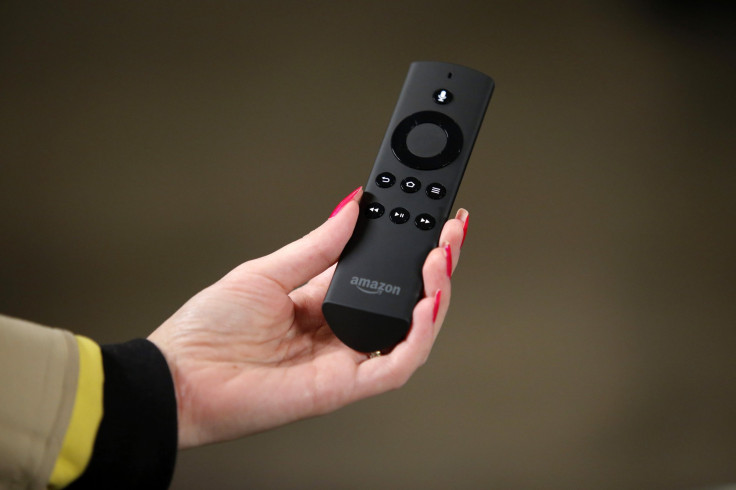Can Roku Withstand Amazon's Fire?

Roku (NASDAQ:ROKU) lists Amazon (NASDAQ:AMZN) as one of its biggest competitors in its quarterly filings with the Securities and Exchange Commission. And its competition with Amazon just got a bit bigger, after the online retailer announced a partnership with Best Buy (NYSE:BBY) to sell several new Fire TV Edition smart TVs.
This article originally appeared in the Motley Fool.
Roku is putting a greater focus on licensing its software to television manufacturers in 2018, as it looks to expand the reach of its platform. The company faces significant gross-margin pressure on its set-top boxes and streaming sticks, as a result of competition -- Amazon and Alphabet 's Google often sell similar devices at or below cost. Integrating its software with TV sets means Roku can reduce the margin pressure of player sales on its overall business, while improving the functionality of its platform through deeper device integration.
Evidently, Amazon thought that was a pretty good strategy. After releasing several Fire TV Edition sets last year, Amazon is doubling down on the strategy in conjunction with Best Buy this year. Is Roku up for the competition?
Amazon And Best Buy Have A Lot Of Power Over Roku
The majority of Roku's set-top boxes and streaming sticks are sold through third-party retailers like Best Buy and Amazon. In fact, in 2016 and 2017, 61% of the company's player revenue came from Amazon, Best Buy, and Walmart.
If Amazon.com or Best Buy decided to focus on its own products, such as the upcoming Fire TV Edition sets from Best Buy's private-label Insignia brand, it could dramatically impact Roku's sales. Best Buy previously partnered with Roku for its Insignia smart TVs, so at the very least Roku will lose those sales.
Furthermore, Amazon has shown a willingness to stop selling popular items in the past, such as Google's Chromecast or Nest thermostat. But that feud largely stemmed from a competition broader than just selling competing devices. Roku's agnostic approach to streaming-video services and devices should keep it out of the crosshairs of Amazon or Best Buy.
With a significant portion of Roku's player sales coming from Amazon and Best Buy, it's not great for Roku investors that the two retailers are teaming up for a competing product.
Looking On The Bright Side
There are a few keywords in Amazon's press release announcing its partnership with Best Buy. The announcement specifically states they signed an "exclusive multi-year partnership."
As Needham analyst Laura Martin points out, the deal "eliminates Amazon as a competitive threat in Walmart" as well as most of Roku's other top retailers. Additionally, "Best Buy can still sell all other Roku TVs," she notes.
While Amazon and Best Buy are two of Roku's biggest retailers, the majority of Roku players are sold from other stores or directly from Roku's website. The multiyear agreement means Roku won't have to worry about Amazon Fire TV Edition televisions outside of those two stores.
Furthermore, Martin points out Amazon's manufacturing partners aren't as strong as Roku's. "The Insignia brand has not held a top 13 TV market share in the past 10 years and the Toshiba brand fell from about 7.2% market share in 2011 to nearly zero in 2017," she wrote. For comparison, TCL -- Roku's premier licensing partner -- was the No. 3 smart-TV manufacturer in the U.S. last year.
So, while Amazon and Best Buy teaming up on new smart TVs sounds ominous for Roku, the actual impact on Roku's results won't be very big. That could change if Best Buy or Amazon decides to stop selling Roku devices altogether, but that seems unlikely. The first Fire TV Edition devices will come to Best Buy this summer, and investors should keep an eye on how the two retailers handle their rollout. For now, though, there's not much to worry about.
John Mackey, CEO of Whole Foods Market, an Amazon subsidiary, is a member of The Motley Fool's board of directors. Suzanne Frey, an executive at Alphabet, is a member of The Motley Fool's board of directors. Adam Levy owns shares of GOOG and Amazon. The Motley Fool owns shares of and recommends GOOGL, GOOG, and Amazon. The Motley Fool has a disclosure policy.





















